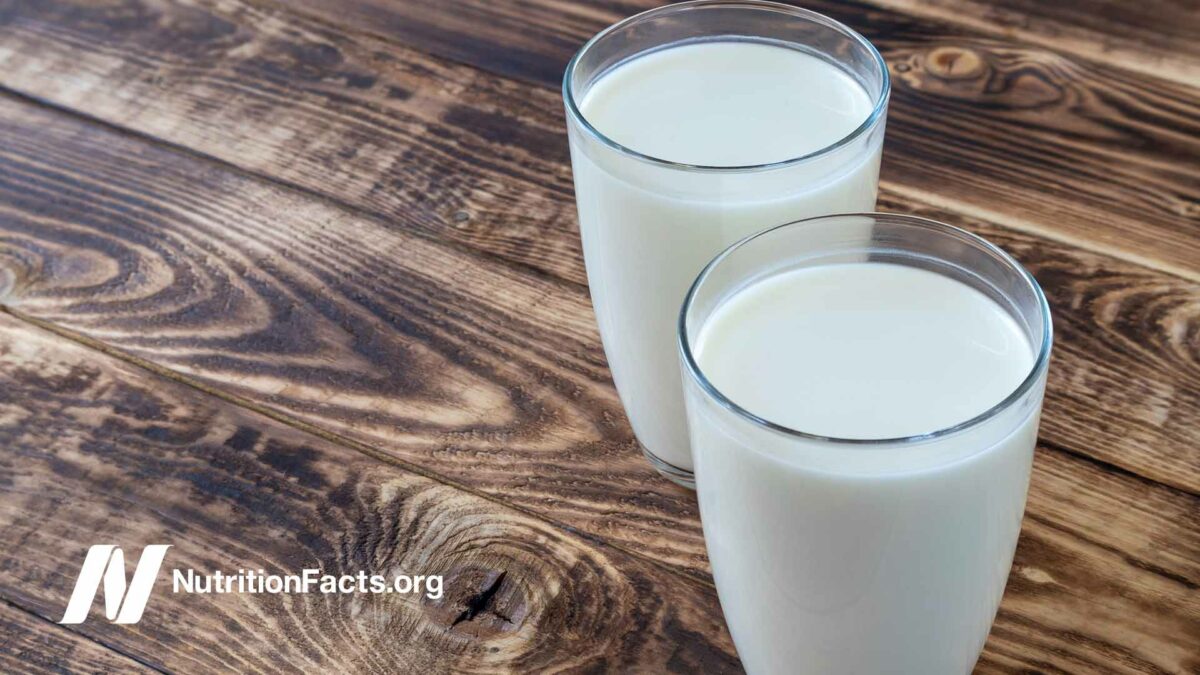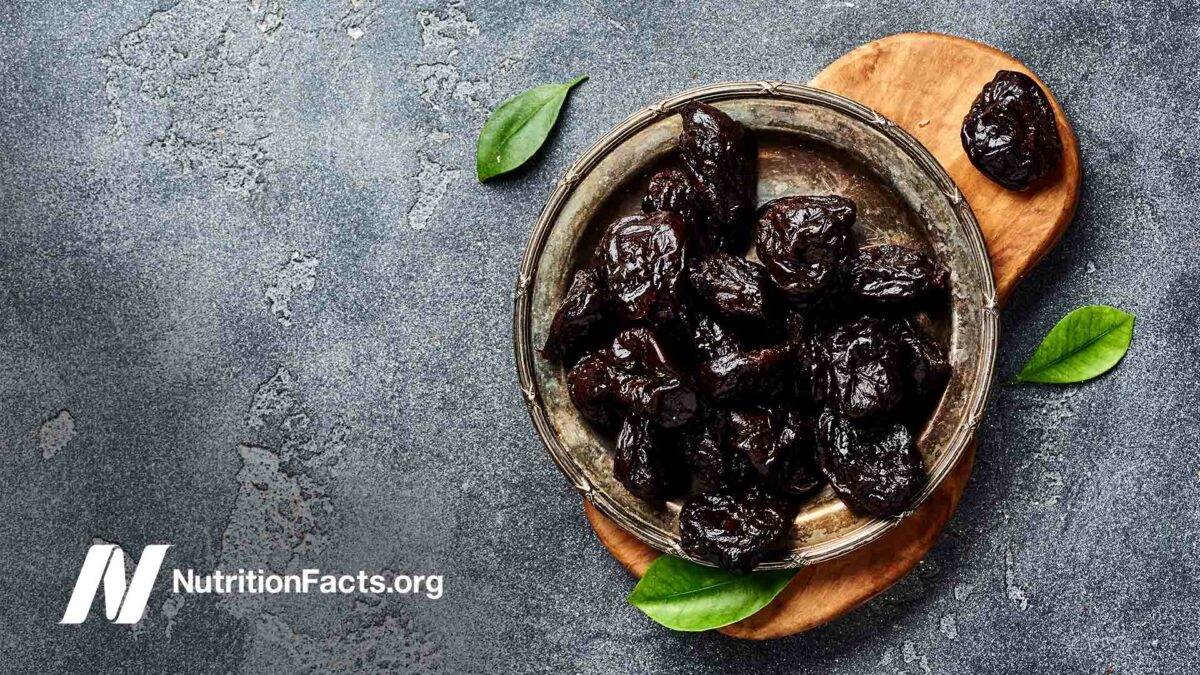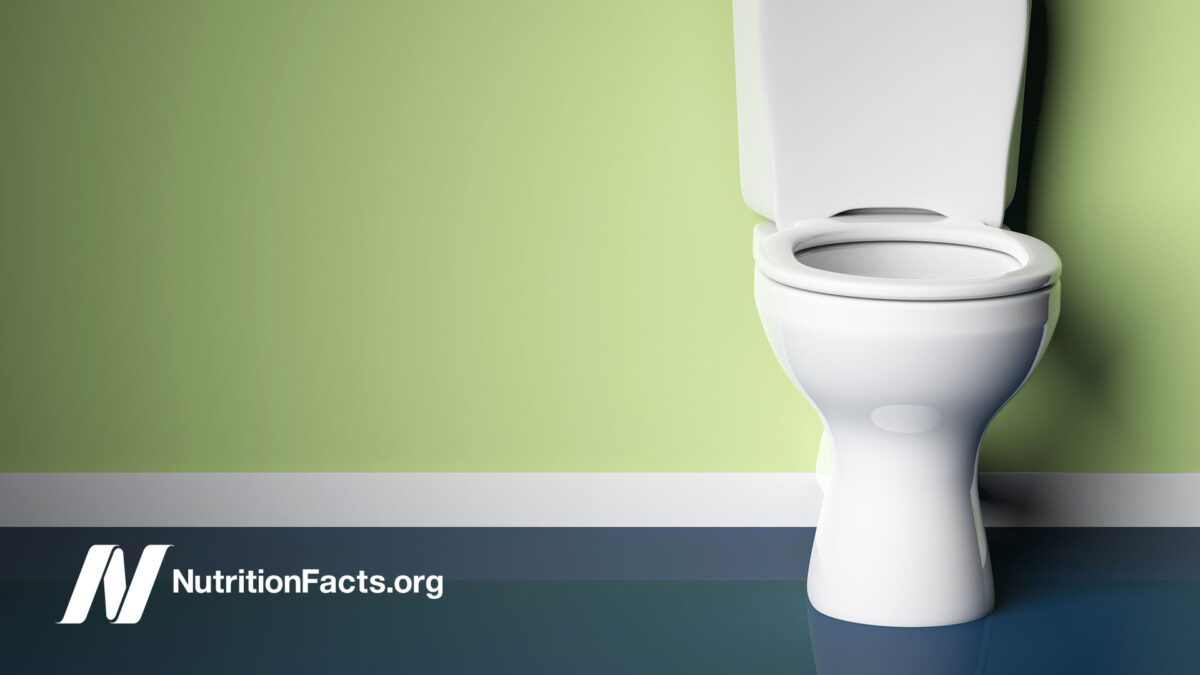
Constipation
Constipation is a common gastrointestinal issue, one of the most common GI complaints in the United States, for instance, leading to millions of doctors’ appointments each year and 800,000 emergency room visits. Older adults are at increased risk, perhaps due to decreased dietary fiber, fluids, and physical activity. Other than straining at hard stool and infrequent bowel movements, symptoms of constipation can include abdominal discomfort and pain, bloating, nausea, and rectal bleeding during defecation. Though it can often be benign, any sign of blood from bathrooming should always be something you get checked out by a medical professional.
A systematic review of the impact of constipation on people’s lives found that the decrease in quality of life was comparable to that experienced by persons suffering from conditions such as osteoarthritis, rheumatoid arthritis, chronic allergies, and diabetes.
If you routinely strain during bowel movements, over time, the increased pressure to push out stool can actually push part of the stomach up and out of the abdomen, which allows acid to reflux up toward the throat and cause symptoms like heartburn. This same pressure exerted on the toilet week after week can also cause other issues, including hemorrhoids and varicose veins, as well as anal fissure and other painful conditions.
The pressure from straining on the toilet may cause pockets to pop out from the wall of the colon, a condition known as diverticulosis. The increased abdominal pressure may also back up blood flow in the veins around the anus, causing hemorrhoids, and even push blood flow back into the legs, resulting in varicose veins. But, a fiber-rich diet can relieve the pressure—in both directions. Those who eat diets that revolve around whole plant foods tend to pass unforced bowel movements, which results in more than 25 times lower rates of so-called pressure diseases, such as diverticulitis, hemorrhoids, varicose veins, and hiatal hernias.
For substantiation of any statements of fact from the peer-reviewed medical literature, please see the associated videos below.
Image Credit: Image by Mohamed Hassan from Pixabay. This image has been modified.
Popular Videos for Constipation


Childhood Constipation and Cow’s Milk
The elimination of all dairy products was found to cure constipation in up to 100%...
Club Soda for Stomach Pain and Constipation
Is carbonated water good or bad for heartburn, dyspepsia, and bowel regularity?
Prunes: A Natural Remedy for Constipation
Prunes, figs, and exercise are put to the test as natural home remedies for constipation.
The Best Poop Position for Constipation
The Squatty Potty is put to the test.
Stool Size Matters
Larger bowel movements are associated with lower risk of appendicitis, colon cancer, constipation, and diverticulitis.
How Many Bowel Movements Should You Have Every Day?
Most people have between 3 bowel movements a day and 3 a week, but normal...
Should You Sit, Squat, or Lean During a Bowel Movement?
Squatting and leaning can help straighten the anorectal angle, but a healthy enough diet should...All Videos for Constipation
-

Causes, Prevention, and Treatment of Varicose Veins
Perhaps Ugandans had more than 50 times fewer varicose veins for the same reason they had 50 times less heart disease and up to 50 times less colon cancer.
-

Comparing the Benefits and Side Effects of Ozempic (Semaglutide)
Obesity can be so devastating to our health that the downsides of any effective drug would have to be significant to outweigh its weight-loss benefits.
-

Is Ozempic (Semaglutide) Safe? Does It Increase Cancer Risk?
How common are serious potential side effects of GLP-1 weight-loss drugs, such as suicide, pancreatitis, bowel obstruction, thyroid cancer, and pancreatic cancer?
-

How to Control the Side Effects (Including “Ozempic Face”) of GLP-1 Drugs
How might we mitigate the gastrointestinal and muscle loss side effects of GLP-1 weight-loss drugs?
-

How Not To Age – Live Presentation
In this live lecture, Dr. Greger offers a sneak peek into his latest book, How Not to Age, a New York Times Best Seller.
-

Book Trailer for How Not to Age
Learn about my newest book, How Not to Age, a New York Times Best Seller.
-

The Best Poop Position for Constipation
The Squatty Potty is put to the test.
-

Prunes: A Natural Remedy for Constipation
Prunes, figs, and exercise are put to the test as natural home remedies for constipation.
-

Fasting to Naturally Reverse High Blood Pressure
A whole food plant-based diet can be used to help lock in the benefits of fasting to kickstart the reversal of high blood pressure.
-

Highlights from the 2020 Dietary Guidelines Hearing
I was honored to testify before the US government’s Dietary Guidelines Advisory Committee. Check out the video to see my speech and a few of my favorite excerpts.
-

Benefit of Dates for Colon Health
Seven dates a day for three weeks are put to the test in a randomized controlled trial.
-

Is Fiber an Effective Anti-Inflammatory?
Most Americans get less than half the recommended minimum fiber intake a day and the benefits of fiber go way beyond bowel regularity.
-

Club Soda for Stomach Pain and Constipation
Is carbonated water good or bad for heartburn, dyspepsia, and bowel regularity?
-

Berries vs. Pesticides in Parkinson’s Disease
Berries counteract the neurotoxic effects of pesticides in vitro, potentially explaining why berry consumption is associated with lower risk of developing Parkinson’s disease.
-

Lose Two Pounds in One Sitting: Taking the Mioscenic Route
Our physiology evolved for millions of years eating a plant-based diet. What would happen if researchers tried to recreate our ancestral diet in the lab?
-

Should We Take EPA and DHA Omega-3 for Our Heart?
What’s the best way to fulfill the omega-3 essential fat requirements?
-

The Five-to-One Fiber Rule
A guideline is suggested for how to read food labels for grain products such as bread and breakfast cereals.
-

Should You Sit, Squat, or Lean During a Bowel Movement?
Squatting and leaning can help straighten the anorectal angle, but a healthy enough diet should make bowel movements effortless regardless of positioning.
-

How Many Bowel Movements Should You Have Every Day?
Most people have between 3 bowel movements a day and 3 a week, but normal doesn’t necessarily mean optimal.
-

Can Oatmeal Reverse Heart Disease?
Less than 3% of Americans meet the daily recommended fiber intake, despite research suggesting high-fiber foods such as whole grains can affect the progression of coronary heart disease.
-

How Many Glasses of Water Should We Drink a Day?
Based on the potential benefits of proper hydration such as reduced bladder cancer risk, how many cups of water should we strive to drink every day?
-

Childhood Constipation and Cow’s Milk
The elimination of all dairy products was found to cure constipation in up to 100% of kids tested, leading to a resolution of rectal inflammation and complications such as anal fissures.
-

Breast Cancer and Constipation
The reason why women who have more frequent bowel movements appear to be at lower risk for breast cancer may be because bile acids absorbed from our intestines concentrate in the breast and have a estrogen-like tumor promoting effect.
-

From Table to Able: Combating Disabling Diseases with Food
Dr. Greger has scoured the world’s scholarly literature on clinical nutrition and developed this new presentation based on the latest in cutting-edge research exploring the role diet may play in preventing, arresting, and even reversing some of our leading causes of death and disability.
-

One in a Thousand: Ending the Heart Disease Epidemic
Many of our most common diseases found to be rare, or even nonexistent, among populations eating plant-based diets.
-

More than an Apple a Day: Preventing the Most Common Diseases
Dr. Greger has scoured the world’s scholarly literature on clinical nutrition, and developed this brand-new live presentation on the latest in cutting-edge research on how a healthy diet can affect some of our most common medical conditions.
-

Prunes vs. Metamucil vs. Vegan Diet
The average number of bowel movements a week is compared between those eating prunes, those taking a fiber supplement, and those eating a strictly plant-based diet.
-

Kiwifruit for Irritable Bowel Syndrome
A kiwifruit intervention was found to improve bowel function in those suffering from irritable bowel syndrome with constipation. This was accomplished without side effects, such as heart attacks and stroke associated with the primary drug prescribed to treat the condition, tegaserod.
-

Get the Lead Out
Toxic heavy metal contamination of Ayurvedic dietary supplements is, in most cases, intentional.
-

Bowels of the Earth
Which country has the largest (and smallest) average stool size?
-

Food Mass Transit
Most women experience a four-day intestine transit time; likely too long to meet the target 200 gram (half pound) minimum fecal output for cancer prevention.
-

Stool Size Matters
Larger bowel movements are associated with lower risk of appendicitis, colon cancer, constipation, and diverticulitis.
-

Diverticulosis and Nuts
Should people with diverticulosis avoid nuts, seeds, and popcorn?
